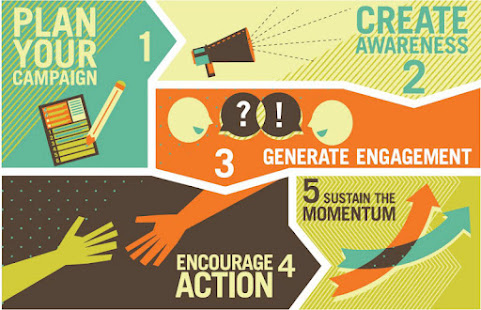I just had one of those godawful internet experiences of losing a few
thousand words I labored over for the entire evening – because I forgot to hit
“update”. I was adding it to a previously-published post, so it wouldn’t
automatically save as a draft. So it didn’t. But I will make an attempt at
piecing it back together. The gifs are random and just a way to break up the block of text.
Have you ever had a relative you tolerated, even tried to be nice to,
strictly because they were kin and you didn’t feel you had a choice? I had one
of those, but no more. I had to unload this person for the sake of my – excuse
me – “mental health”.
And the whole thing is so ironic, in light of what went down, and why.
My sister-in-law, my husband’s brother’s wife, whom I will call Janie,
is what used to be called a “ busybody” – happily probing into everyone else’s
business, then passing along the most sensitive bleeding chunks of information with
relish, especially if it would serve her in some way. And this did.
She would phone me. For the past 30+ years, at least three or four times a year, she’d
phone me, and talk, and talk, and talk, in her rattling-on, self-involved way –
which was irritating enough – but it was worse than that. I don’t know how some
people do this, but she was adept at extracting information from people – me in
particular. When I’d finally get off the phone with her, which always took a
lot of effort, I’d always have the feeling that I never should have told her
any of that stuff. But somehow it came out. Like a robin pulling a worm out of
the ground, she somehow got things out of me, largely from asking questions so
none-of-her-business that you somehow answered her because you couldn’t quite
believe what she just said.
Never once, ever, in my life, have I phoned Janie, because I didn’t want
to phone Janie. I don’t like Janie, and I never did. I don’t want to talk to
her. Ever. And yet, for reasons I have never understood, she phones and phones,
tagging along after me like a particularly obnoxious dog you can’t shake off.
This has taken a turn just lately because she started to follow my Facebook
posts, and leave likes and comments on the majority of them. Some of them were nice, but
mostly they gave me that cloying feeling. She was fastening on. Coat-tailing,
they used to call it. Even reading her comments made me feel drained. After she
read my Facebook post on “Why I Hate Mental Health” (because it has become a
shallow, meaningless buzzword), she phoned me (of course! She always phones
me!), and began to talk. Oh yes, I was so right! Oh yes, the mental health care
system is terrible! And as it turned out, she has taken it upon herself to
become a Mental Health Crusader, and has joined some sort of board of directors
and gets up at board meetings and tells Tales of Terror from the Crypt of
Mental Illness.
I should have been clued in when she said she told them all about her
close friend, a woman with schizophrenia whose doctor changed her meds, leading
her to attempt suicide so she had to be hospitalized. She told this in colorful detail,
which I am sure must have really impressed her pals at the board meeting, but
while she was rattling on, my guts began to squirm.
Did Janie, um, like, ask permission to say these things? Did her close
friend want those painful episode brought up and trotted out as an example of
How the System Fails the Mentally Ill? I had no idea, but my stomach-squirm
turned out to be prescient.
To further prove what a selfless crusader she is for the lame, the halt and the blind, she then launched into the story of how I had to spend three nights in
a hospital corridor because they had no room for me in the psych ward, and how
I had then climbed out of bed, crawled down the hall on my hands and knees to a
pay phone, and phoned the crisis line so I’d have someone to talk to.
That’s the thing, Janie remembers stuff. God, does she remember. This was the
kind of thing I would tell her, oh, maybe 30 years ago, but she filed it all
away. But there it was again, dredged up,
fresh as paint, raw and red and glistening. She then said she told this
psychiatric horror story at her board meeting, in an attempt to raise funds for
one of her pet projects, Feed the Criminally Insane or something. No kidding,
she told my story to impress the board.
But there was just one problem. More than one, really, but the main one
is this: it never happened. She took several different stories I wish I had
never told her and conflated them, stitched them together, “curated” them into
the ultimate horror story, when in reality the hospital corridor thing (which was only one night) happened
in 1982, and the crisis line thing happened in an entirely different setting
(NOT a hospital) in 2004. And never did I ever crawl on my hands and knees. I
walked, until some nurse shouted at me “GET BACK INTO BED!” (which was bad
enough, but still not crawling). So the most RECENT story, told in very garbled
form, happened 20 years ago. Out of these rags and tatters, she stitched together a crazy quilt of horror
that was much more colorful and impressive than anything that actually happened.

She did mention that she "didn't use my whole name", which she seemed to think made it perfectly OK to profit from my "story". (Though she DID say it was her sister-in-law.) She also assumed that because I had told HER about it, I was completely fine with sharing it with anyone at all, up to and including a Society for the Prevention of Straitjackets (or whatever the hell).
But this time it was different. I had had it with Janie. Forever. I just
couldn’t pretend to be nice to her any more and just told her to STOP dragging
up stuff from the past that I’m trying to forget about! And I tell you, she was
very upset. I was raining on her social worker/self-righteous-charity-lady parade, thwarting her shining quest to Speak for Those who Cannot Speak for
Themselves, the powerless, the
stigmatized, the crawling dregs of society!
I don’t remember yelling at her any time before in all those dozens or
hundreds of annoying one-sided phone calls, but I did it this time, and she was
not only astonished but actually quite offended. What?? I’m not grateful for
her selfless service to The Cause? I didn’t want to help her save every mental patient who ever crawled along the floor in a psych ward? Well, no, Janie. I don't. She finally said,
“QUIT SHOUTING AT ME! I heard you the first time, so you can just stop ranting
at me!”
At that point, I hung up. I immediately blocked her on Facebook, then deleted
her furious email response unread, though the first line gave the impression of a tiny
little person jumping up and down and screaming. The exclamation points were
practically flying off the page. So that’s the end of Janie, and I now realize I
never DID have to have any sort of relationship with her. I just felt like a
captive audience. I never wanted to talk to her on the phone, yet for years and
years I let it happen, and she went right on studying and extracting and
collating her crystalline memories of fuckups that happened to me forty years
ago. (Or maybe they didn't, but it sure sounded good that way.) I’m fascinating, you see. I’m a
live one. Right there in the jar, on the end of the assembly line. So her scientific
little busybody mind could poke, prod, and finally present the results of her
laboratory experiment to the Board of Directors, with the final goal of getting
a cash grant for all her psychiatric charity work.

I guess this has gone on long enough, and if THIS one gets deleted I
give up. I guess what I’ve learned is to pay a lot more attention to my
discomfort and to trace it down to the source – and then, wherever possible,
GET RID OF the source so I can live my life without emotional vampirism, from
my own family or from anyone else.
I've left out a few bits and pieces, but because it's my blog and I'll rant if I want to, I'll add this. On the phone, Janie recounted how she was gathering funds for her Mental Health Event (bake sale, rodeo, nude swim), and someone dared to joke at her, saying "so are you crazy too?" or something equally devastating. Janie told him to FUCK OFF, turned on her heel and walked away. (This was in public.) She recounted this proudly, as if to elicit oohs and ahhs from me, exclamations of how brave, how gutsy, oh my, you go girl, etc. Ohhhh, thank you so much for standing up for me, speaking for those incapable of speaking for themselves! (At the same time, do you notice anything here? ANY implication AT ALL that she herself has a mental health condition is outrageous and abusive and causes her to fly into a public fury.)
Janie has never been popular in my family. No
one says it out loud, because we’re not that sort of family, but everyone has had a
“story” at some point. Bill’s sister Judy once told me in a sort of muttering
voice that she saw Janie in her kitchen, opening each kitchen cupboard and each
kitchen drawer and snooping around in the contents. She said it was like an inspection.
Mostly the muttered complaints were about the fact that they never saw her husband (was he being held hostage somewhere?), and her busy-body-ness and general obliviousness
to other people’s feelings. Then I heard the incredible story from Bill’s
brother that Janie had once been in a cult, complete with shaved head, mantras,
sexually-abusive gurus, and whatever else they have in cults. It struck me as
strange, as she doesn’t strike me as someone who would take orders from anyone
– or was it a sort of School for Cult Leaders, and she was studying for a
degree?


















.jpg)

















